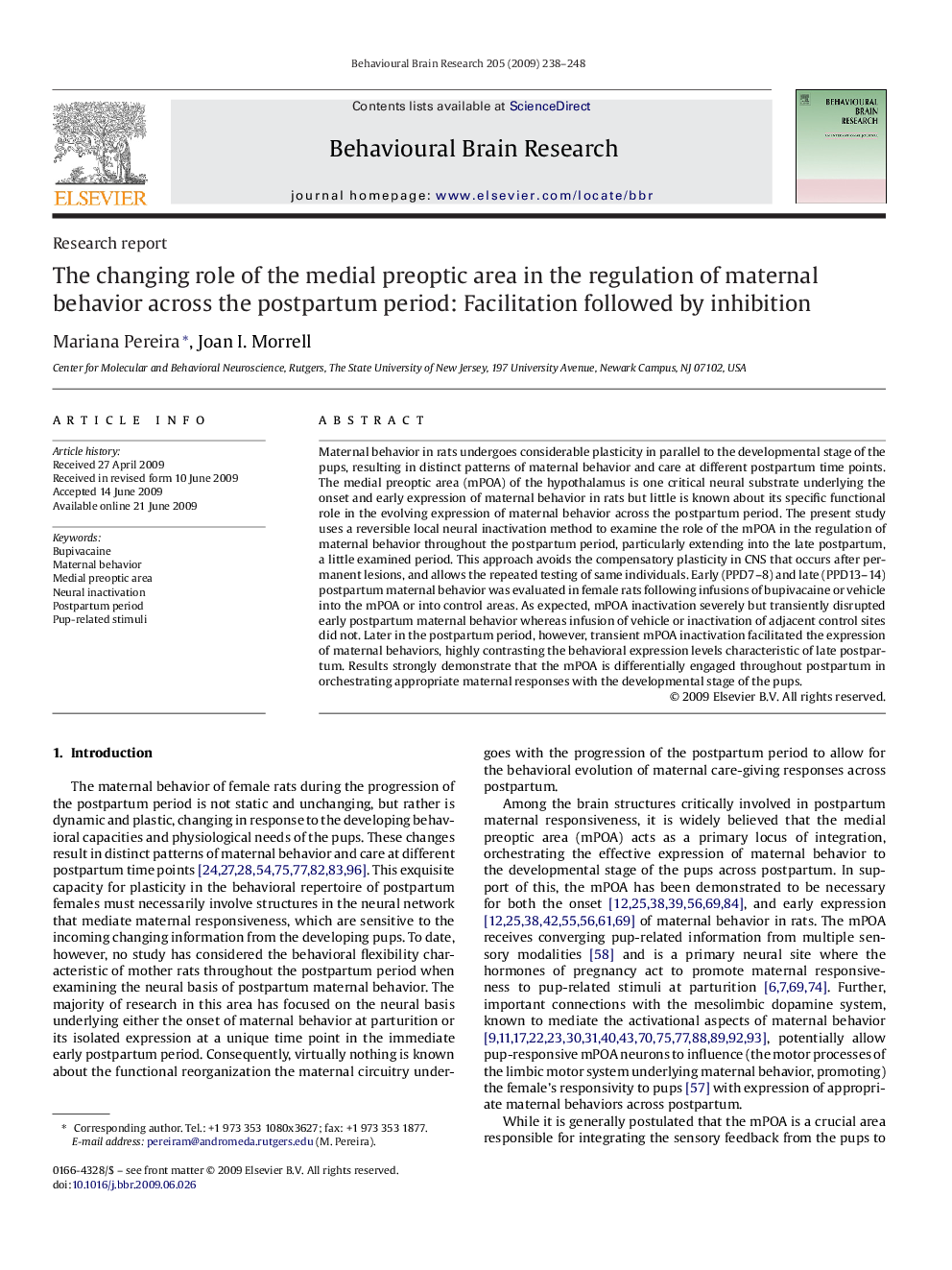| Article ID | Journal | Published Year | Pages | File Type |
|---|---|---|---|---|
| 4314532 | Behavioural Brain Research | 2009 | 11 Pages |
Maternal behavior in rats undergoes considerable plasticity in parallel to the developmental stage of the pups, resulting in distinct patterns of maternal behavior and care at different postpartum time points. The medial preoptic area (mPOA) of the hypothalamus is one critical neural substrate underlying the onset and early expression of maternal behavior in rats but little is known about its specific functional role in the evolving expression of maternal behavior across the postpartum period. The present study uses a reversible local neural inactivation method to examine the role of the mPOA in the regulation of maternal behavior throughout the postpartum period, particularly extending into the late postpartum, a little examined period. This approach avoids the compensatory plasticity in CNS that occurs after permanent lesions, and allows the repeated testing of same individuals. Early (PPD7–8) and late (PPD13–14) postpartum maternal behavior was evaluated in female rats following infusions of bupivacaine or vehicle into the mPOA or into control areas. As expected, mPOA inactivation severely but transiently disrupted early postpartum maternal behavior whereas infusion of vehicle or inactivation of adjacent control sites did not. Later in the postpartum period, however, transient mPOA inactivation facilitated the expression of maternal behaviors, highly contrasting the behavioral expression levels characteristic of late postpartum. Results strongly demonstrate that the mPOA is differentially engaged throughout postpartum in orchestrating appropriate maternal responses with the developmental stage of the pups.
